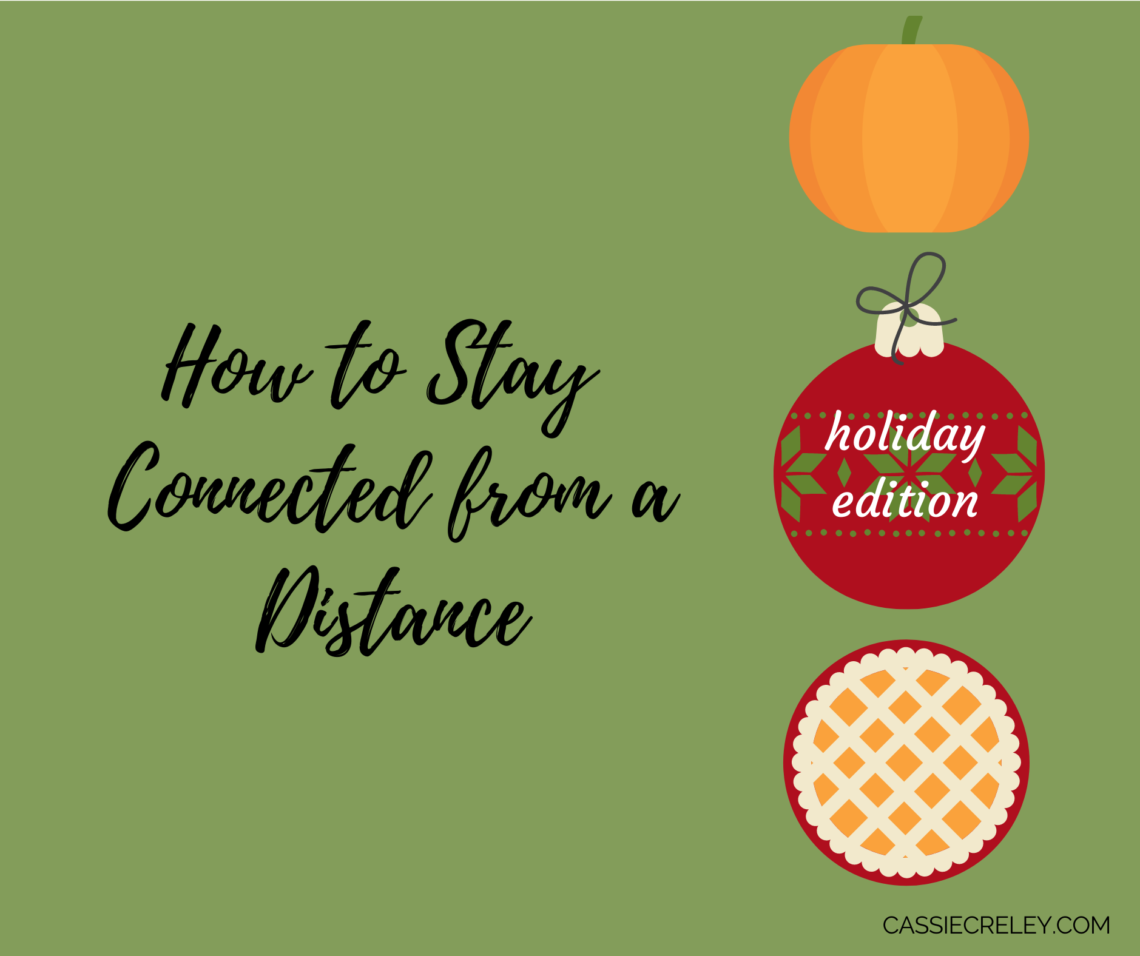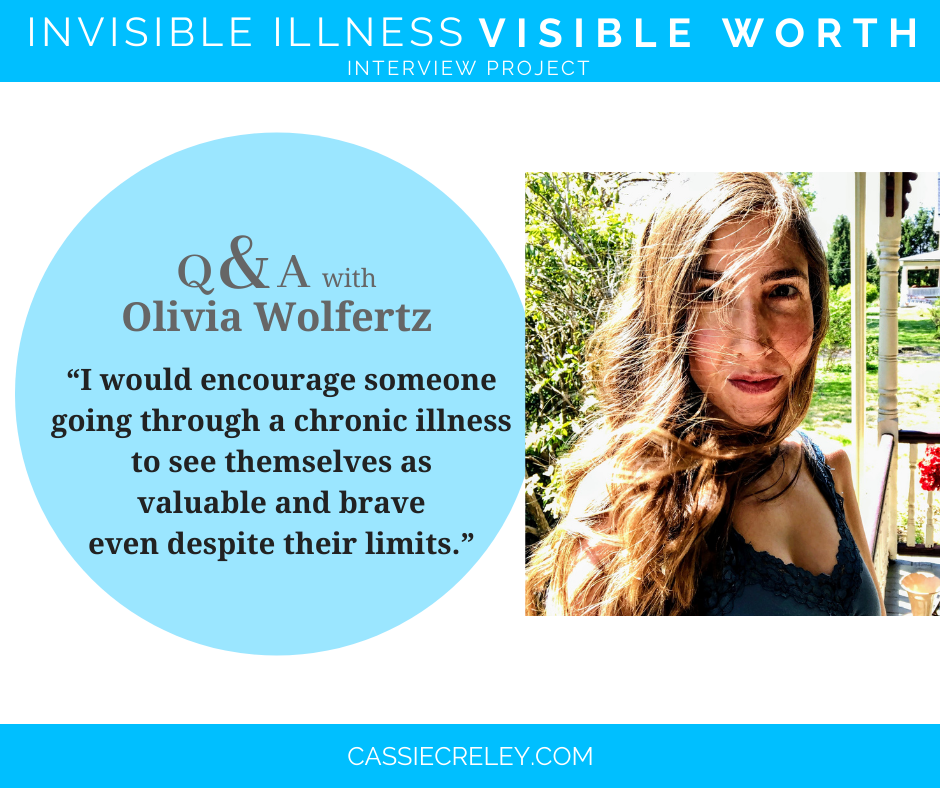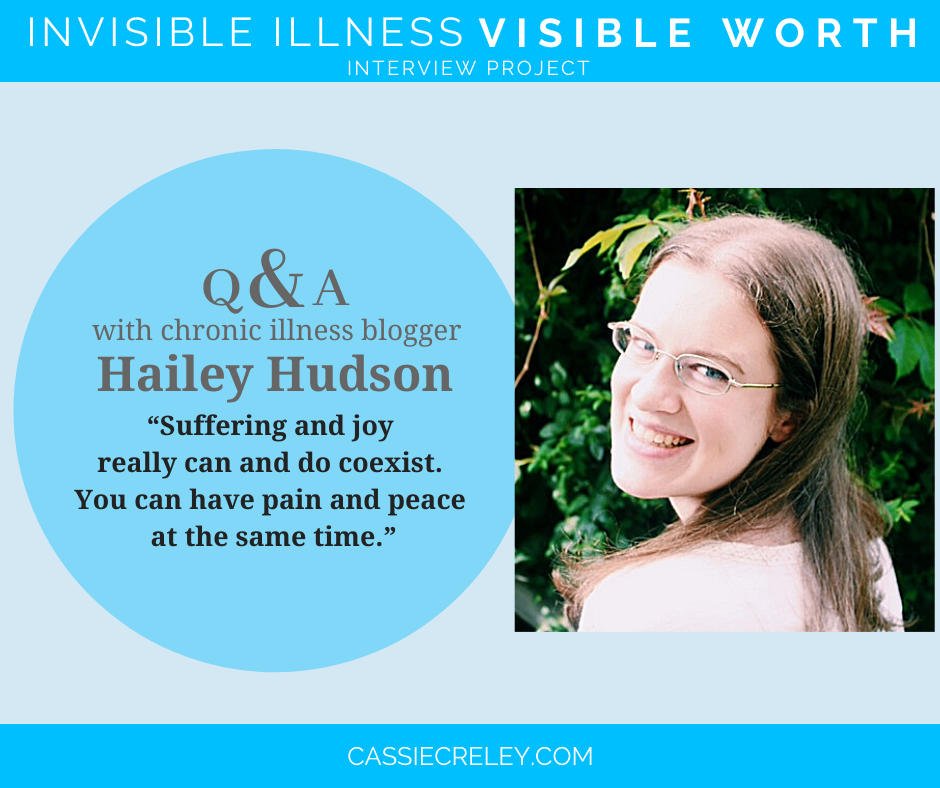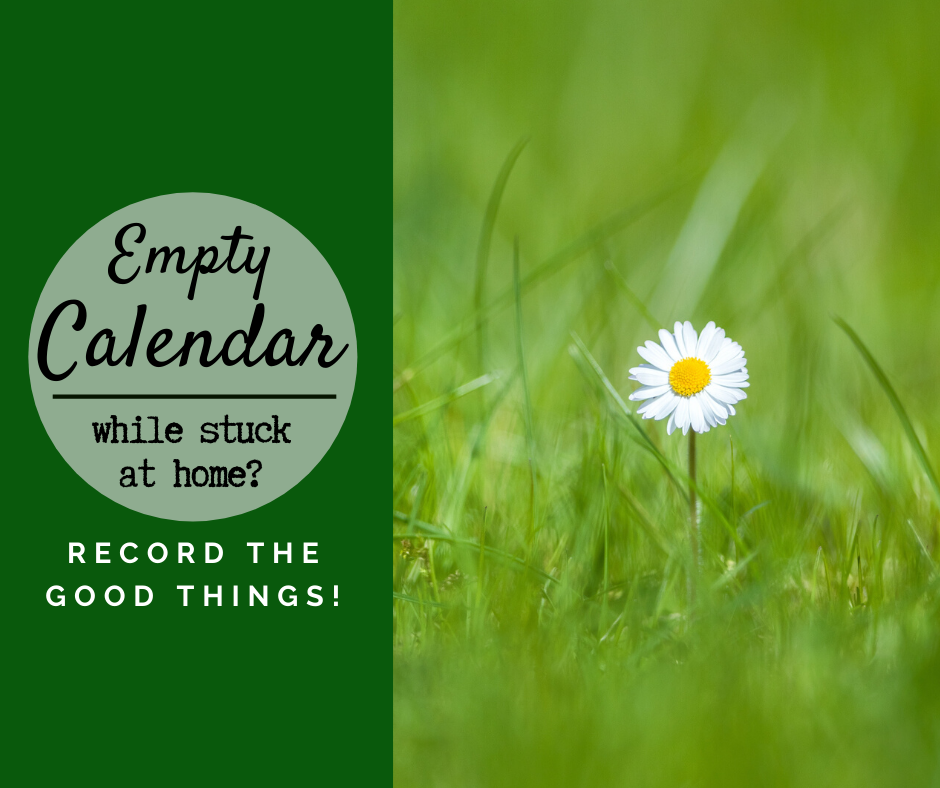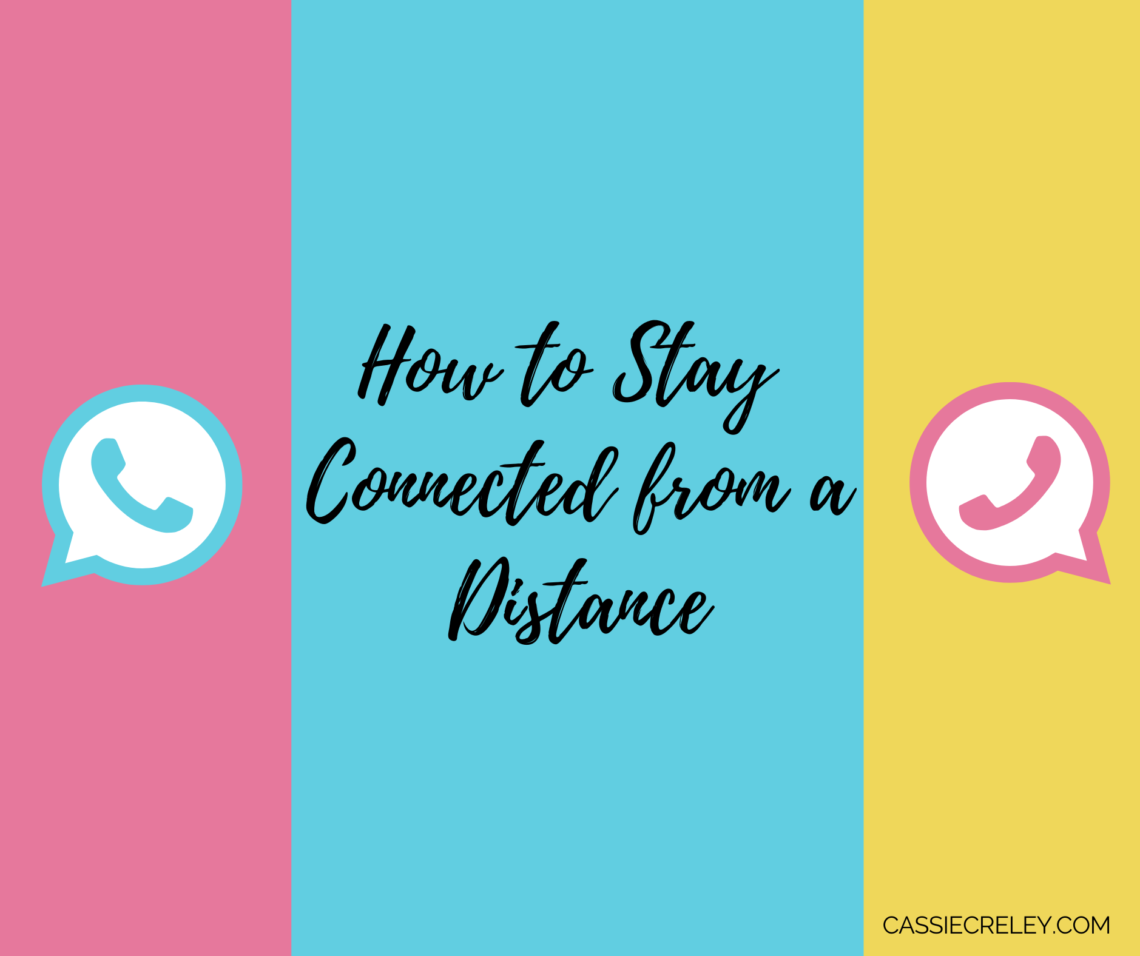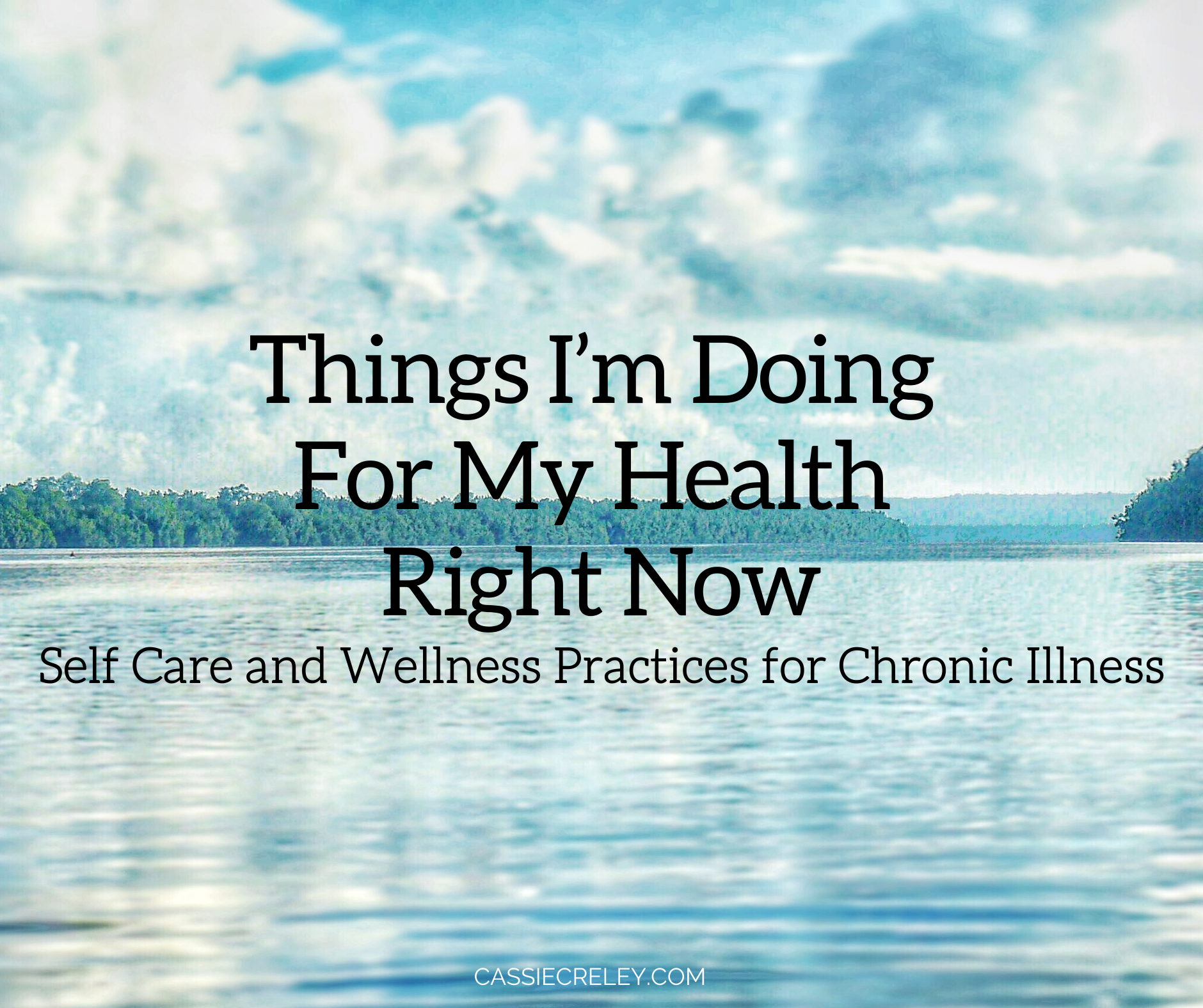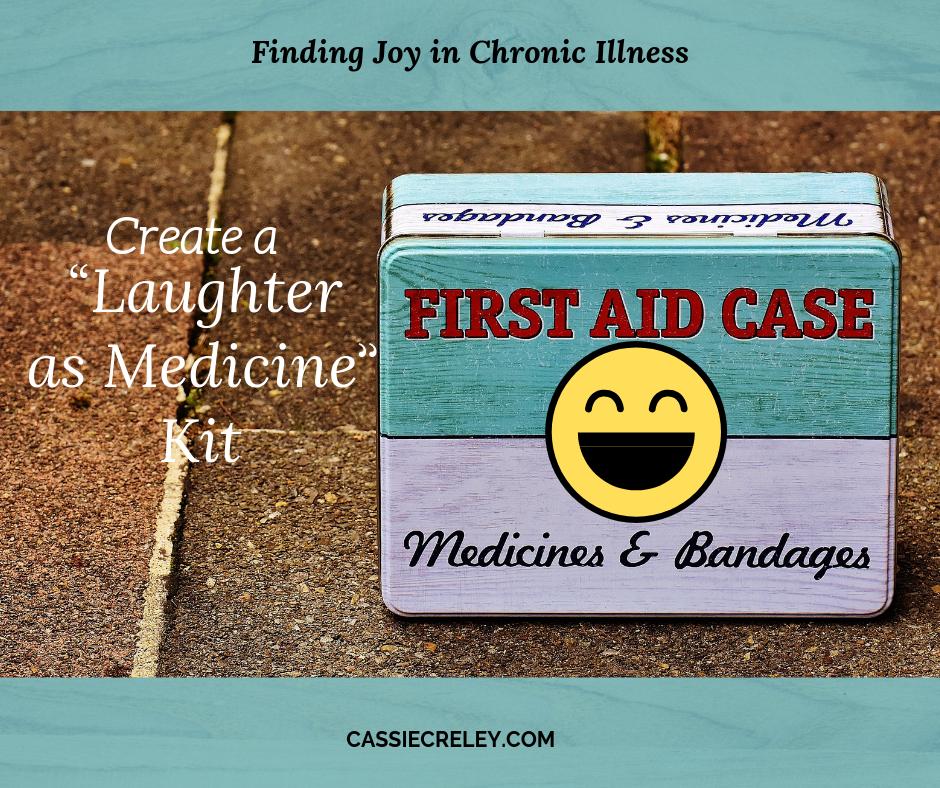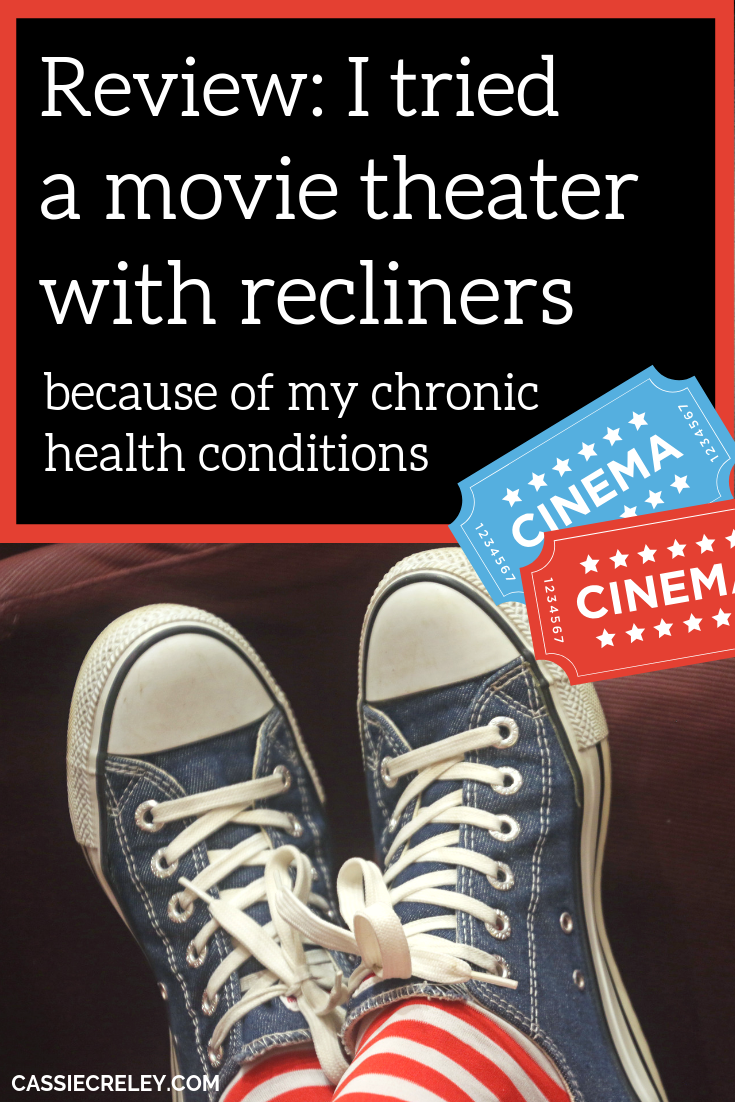-
How To Stay Connected From A Distance-Holiday Edition
The holiday season is coming, and I want to share some fun and creative ways to stay connected even from a distance. It can be challenging to stay connected while apart. Chronic illness can limit our ability to travel or visit, and risk due to the pandemic adds another layer of restrictions.
Thankfully, technology provides a lot of ways to keep in touch so we’re not isolated. I’m going to share ideas for virtual Halloween, Thanksgiving, and Christmas parties.
I’ve been thankful to be able to meet up with a few friends outdoors in the last month or so for socially distanced get-togethers. Now the weather is getting colder (too cold for this asthmatic to be outdoors here in Washington). So I’m thinking about ways to make virtual get-together’s into holiday parties.
I hope these ideas inspire many fun celebrations!
-
Q&A with Olivia Wolfertz: “I would encourage someone going through a chronic illness to see themselves as valuable and brave even despite their limits.”
Olivia Wolfertz runs the blog Unpolished Ponderings, where she shares her love of Jesus and creativity, plus a hopeful outlook on life with chronic illness. I feel so blessed that this Invisible Illness, Visible Worth interview project continues to let me connect with kindred spirits who love stories, creating, and writing!
Olivia created her blogging platform a few years ago as a way to document and cope with her illnesses, including Lyme disease. It’s grown into an outlet where she loves to share what she’s been making lately and what’s encouraging her.
-
Q&A with blogger Hailey Hudson: “Suffering and joy really can and do coexist.”
I love that the Internet provides us with so many opportunities to connect with and be encouraged by fellow writers, and I’m excited to introduce you to Hailey Hudson, whose interests include blogging, freelancing, and fiction writing. She lives with health conditions including POTS (postural orthostatic tachycardia syndrome), carpal tunnel, and undiagnosed conditions causing chronic fatigue, seizures, and GI issues. (Raising awareness about POTS is of personal importance to me, as I also have a form of dysautonomia, an umbrella term for neurological conditions like POTS.)
Hailey is a full-time freelance writer and content marketer who runs the blog The Hardworking Creative. You can also find her on her personal blog, Now All I Know is Grace. I love that she shares monthly wrap-ups highlighting what she’s reading, listening to, watching, grateful for, and more
Earlier this year, Hailey spoke at the 2020 Diamonds Conference, which is an online conference for chronically ill Christians. (I didn’t get to go this year, but it’s something I learned about recently and hope to attend in the future. More info about it below!)
I hope you’re encouraged by this conversation with Hailey on chronic illness, faith, and perseverance.
-
Empty Calendar While Stuck At Home? Record The Good Things!
A lot of us are stuck at home or stuck inside right now, and if you’re like me, facing an empty calendar might make you feel blue. I originally envisioned this post for people who spend most of their time at home due to chronic illness, and I hope this topic will be helpful to even more people while we’re experiencing social distancing and self-quarantine.
While staying at home a lot over the last three years due to my health, I’ve found it helpful to look at my blank calendar as an opportunity—it’s the perfect place to record the good things. After all, we don’t have to be busy to be joyful.
This post will help you brainstorm ways your calendar can help you look forward to the future with a sense of anticipation, and look back on memories with a sense of joy and gratitude.
I know not everyone keeps a physical calendar, but if you keep a calendar on your phone or computer, you can use these tips too. Families can use these tips when using the calendar to keep a schedule and sense of normalcy for kids. You could also use this post as a prompt for bullet journaling if that’s the way you prefer to capture what you’ve been up to lately.
-
How To Stay Connected From A Distance
This post is all about finding creative ways to stay connected while we’re apart. I’ve been planning to write this post for awhile, and because of quarantine and social distancing, now seems more perfect than ever.
I’m sure everyone is aware that these are very unusual times everywhere. In case you’re interested in what’s going on in my corner of the world: I’ve been home since March 5 at my doctor’s advice to protect myself from COVID-19. On March 16, Americans were asked to stay home as much as possible to flatten the curve (all schools in Washington were officially closed that day as well), and March 23 the Washington state governor issued a stay-at-home order.
To everyone who is taking this seriously and protecting those of us with weakened immune systems: THANK YOU. We can do this, and I have some tips.
If there is one good thing in the midst of all this, it’s that people are realizing how challenging it can be to stay connected when you can’t leave your home. As I shared in a Facebook post, oddly enough, I’ve been able to be more social recently because people are free to talk to on the phone and join video calls.
Chronic illness is super isolating, and the chronic illness community has a lot of advice for everyone experiencing this challenge. (For more on what this looks like in day to day life for people with chronic illness, I recommend this article from The Mighty.)
This post is for everyone experiencing this temporary change due to quarantine and social distancing, as well as though of us who are chronically ill and have had to adapt long-term.
-
Things I’m Doing For My Health Right Now
I’m a huge advocate of being proactive when it comes to your health, so I today I’m sharing some of the ways I’m doing this right now.
Lately, I’ve had the feeling that no matter what I do for my health, it feels kind of futile. That’s one of the sucky things about being chronically ill—you can do all the right things, and still be, well, chronically ill. Plus, I’ve been dealing with the cold weather (one of my triggers), health set backs, and—oh joy—new symptoms. It’s frustrating and ironic when your health is one of the things keeping you from being proactive about your health.
Thus, this blog post. I thought it would be helpful to record the ways I can be proactive about my health, and how these actions do help, even if just in a small way.
Some of the items on my list may look a little random, or not the kind of things you would associate with “health.” Most of these things aren’t specific to helping any one health condition, like my dysautonomia, fibromyalgia, asthma, autoimmune disease, ME/CFS, etc. But I’ve been trying to pay attention to what is zapping my energy or causing me stress. Viewing a problem as an opportunity to improve my health helps in two ways: 1) this helps me clarify a goal (less energy output or stress) and 2) this helps motivate me to make positive changes (by reminding me that this is important to my overall wellbeing). This clarity and motivation is enough to break through my brain fog and exhaustion so that I’m able to work on my health.
My hope is that this post will help you take a look at what you’re doing for your own wellness, or inspire you to think of new ways you can include more self care in your life. And when you make that list, I hope your reaction is similar to mine: I might be limited in what I can do for my health right now, but I’m doing the best I can.
-
Create a Laughter as Medicine Kit
This post is all about ideas for adding more laughter to your life!
While laughter may or may not be the best medicine, it sure can make a difference.
I’ve been compiling a list of things that make me laugh, and it’s turned into a kind of first aid kit for making me feel better. Being intentional about cultivating joy and laughter has been even more important to me since I’ve been dealing with multiple chronic illnesses as well as chronic pain. Maybe you’re dealing with similar health challenges, or just looking for tips to improve your wellbeing. So I’m going to share ideas with you so you can make your own customized laughter kit!
Having a list of funny resources has been helpful because my brain is often fried due to chronic illness (hellooooo brain fog!). Instead of having to hunt around when I need a pick me up, I can use my kit as a jumping off point. (I printed my list off, but you can save it to your phone or wherever makes sense for you.)
Oftentimes, when I need a pick-me-up, my brain is too fried to think “Oh, I should watch or read such-and-such, that always makes me feel happier!” So, that’s why I’m making this list, so I know what tools I have in my laughter-as-medicine kit.
Before we dive into making a laughter-as-medicine kit…how exactly does laughter help?
I think we all know that laughter is a good thing, especially if you’re dealing with chronic illnesses, but did you know it can physically make a difference?
-
Review: I tried a movie theater with recliners because of my chronic health conditions
I FINALLY got to see Avengers: Endgame a few weeks ago!
(Don’t worry, this post is spoiler-free!)
I’ll share what I thought of trying a movie theater with recliners for the first time, as well as some tips for going to the movies with dysautonomia, chronic fatigue, fibromyalgia, and other chronic illnesses.
I had been wanting to see Endgame for weeks, having waited a whole year after that cliff hanger. I was carefully avoiding spoilers in conversations and online. (I had to quit Pinterest after seeing two spoiler-y things. And I’m glad I didn’t look up the meaning of two things I saw on Facebook—I figured they were Marvel-related, and after seeing the movie, I’m so glad I didn’t, because they were indeed spoilers!)
